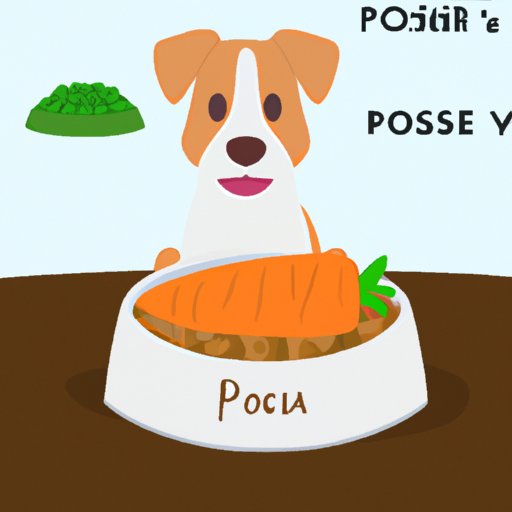As a caregiver, you always want the best for your furry friend. You are their guardian, their friend, and the person they rely on for their care and well-being. This article will guide you through what to add to your dog’s food to ensure they are getting the best nutrition possible.
H2: Understanding Your Dog’s Nutritional Needs
Before we delve into what you should be adding to your dog’s food, it’s important to understand what nutrients your dog needs. Dogs, like humans, require a balanced diet to stay healthy.
- Proteins: Essential for growth and repair. Sources can include meat, fish and eggs.
- Carbohydrates: Provide energy and come from foods like sweet potatoes and brown rice.
- Fats: Necessary for a shiny coat and healthy skin. Sources can include fish oil and flaxseed.
- Vitamins and Minerals: Important for various body functions. They can come from fruits, vegetables, and supplements.
| Nutrient | Source |
|---|---|
| Protein | Meat, Fish |
| Carbohydrates | Sweet Potatoes, Brown Rice |
| Fats | Fish Oil, Flaxseed |
| Vitamins and Minerals | Fruits, Vegetables, Supplements |
H2: Beneficial Additions to Your Dog’s Food
- Probiotics: These are beneficial bacteria that can improve your dog’s gut health. You can buy probiotic supplements designed for dogs, or add a small amount of natural yogurt to their food.
- Fish Oil: Rich in omega-3 fatty acids, fish oil can improve your dog’s coat, skin, and joint health. You can buy fish oil supplements or add a small amount of cooked fish to their food.
- Fruits and Vegetables: Many fruits and vegetables are safe for dogs and provide essential vitamins and minerals. Examples include carrots, blueberries, and cucumbers.
H2: Foods to Avoid Adding to Your Dog’s Food
While some foods can be beneficial, others can be harmful or even toxic. Avoid adding the following to your dog’s food:
- Chocolate
- Grapes and raisins
- Onions and garlic
- Caffeine
- Alcohol
- Xylitol (a sweetener found in many products)
H2: Addressing Special Dietary Needs
Some dogs may have special dietary needs due to age, health conditions, or allergies. Always consult with your vet before making any major changes to your dog’s diet. They can provide guidance and help you create a meal plan that meets your dog’s specific needs.
H2: Frequently Asked Questions (FAQs)
Q: Can I give my dog human vitamins?
A: No, human vitamins may contain ingredients that are harmful to dogs. Always use supplements designed for dogs.
Q: How much food should I give my dog?
A: The amount of food your dog needs depends on their size, age, and activity level. Your vet can provide a guideline.
Q: Can I give my dog raw meat?
A: Raw meat can contain harmful bacteria. It’s generally safer to cook meat before giving it to your dog.
With the right additions to their food, you can ensure that your dog is getting all the nutrients they need to stay healthy and happy. Remember, every dog is unique, so what works for one dog may not work for another. Always consult with your vet to find the best diet for your furry friend.



